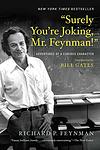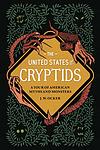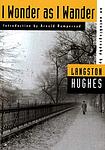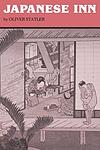The Greatest American "Japan, Nonfiction" Books of All Time
Click to learn how this list is calculated.
This list represents a comprehensive and trusted collection of the greatest books. Developed through a specialized algorithm, it brings together 305 'best of' book lists to form a definitive guide to the world's most acclaimed books. For those interested in how these books are chosen, additional details can be found on the rankings page.
Genres
The "Japan" category for books encompasses a wide range of literature that explores the history, culture, and society of Japan. This includes works of fiction, non-fiction, and poetry that delve into the country's traditions, customs, and beliefs, as well as its modern-day politics, economy, and technology. Books in this category may also focus on specific aspects of Japanese culture, such as its cuisine, art, or entertainment, or explore the experiences of Japanese people living both within and outside of Japan. Overall, the "Japan" category offers readers a rich and diverse selection of books that provide insight into one of the world's most fascinating and complex cultures.
Countries
Date Range
Reading Statistics
Click the button below to see how many of these books you've read!
Download
If you're interested in downloading this list as a CSV file for use in a spreadsheet application, you can easily do so by clicking the button below. Please note that to ensure a manageable file size and faster download, the CSV will include details for only the first 500 books.
Download-
1. Hiroshima by John Hersey
This book provides a detailed account of the aftermath of the atomic bombing of Hiroshima during World War II, as experienced by six survivors. The narrative follows the survivors from the moment of the explosion to their lives in the following years. It explores their struggles, their resilience, and the profound physical, emotional, and social impacts of the event, offering a poignant examination of the human capacity to endure and rebuild in the face of unimaginable devastation.
The 513th Greatest Book of All Time -
2. The Making of the Atomic Bomb by Richard Rhodes
This comprehensive book provides an in-depth account of the development of the atomic bomb during World War II. It explores the scientific advancements that made the bomb possible, the political decisions that led to its creation, and the moral dilemmas faced by the scientists involved. The book also details the personalities of key figures in the Manhattan Project, the effects of the bomb on Hiroshima and Nagasaki, and the impact of nuclear weapons on the world.
The 840th Greatest Book of All Time -
3. The Great Railway Bazaar by Paul Theroux
"The Great Railway Bazaar" is a travelogue in which the author embarks on a four-month journey by train from London through Europe, the Middle East, the Indian subcontinent, Southeast Asia, and Siberia, and then back to Europe. The book is a vivid and insightful account of the people, cultures, landscapes, and experiences encountered during the journey, painting a unique picture of the world as seen from the perspective of a train window. The author's sharp observations and engaging storytelling make this journey as much an inner exploration as a geographical one.
The 1049th Greatest Book of All Time -
4. "Surely You're Joking, Mr. Feynman!": Adventures of a Curious Character by Richard P. Feynman
The book is an autobiography of a Nobel Prize-winning physicist, filled with humorous and insightful anecdotes from his life. It highlights his adventures from his early years, working on the Manhattan Project, to his teaching years at Caltech. The book showcases his unconventional thought process, his insatiable curiosity, and his passion for science, painting a vivid picture of a man who never stopped questioning and learning.
The 1383rd Greatest Book of All Time -
5. Patterns of Culture by Ruth Benedict
"Patterns of Culture" explores the concept of culture as a collective personality, analyzing the patterns of behavior and thought that define different societies. The author uses examples from diverse cultures such as the Pueblo Indians and the Dobu Islanders to illustrate her point. The book argues that each culture has its own unique pattern and personality, which is shaped by its history, environment, and social structure. The author emphasizes the importance of understanding these patterns in order to fully understand and appreciate the diversity of human cultures.
The 2184th Greatest Book of All Time -
6. Unbroken: A World War II Story of Survival, Resilience, and Redemption by Laura Hillenbrand
This book is a gripping true story of a WWII veteran, who was an Olympic runner before the war. His plane crashes in the Pacific during a reconnaissance mission, and he survives for 47 days on a raft, only to be captured by the Japanese Navy and sent to a series of brutal prisoner of war camps. Despite the immense suffering, he remains unbroken, maintaining his dignity and hope, and eventually finds redemption after the war.
The 3645th Greatest Book of All Time -
7. War Without Mercy by John W. Dower
This book provides a detailed analysis of the racial aspects that influenced the Pacific War during World War II. It explores the racial stereotypes, propaganda, and policies that were used by both the United States and Japan, and how these factors contributed to the extreme violence and hatred that characterized the conflict. The book also examines the impact of these racial attitudes on the post-war relations between the two countries.
The 4787th Greatest Book of All Time -
8. The Road Through Miyama by Leila Philip
The book is a memoir that recounts the author's experience living in the rural Japanese village of Miyama, where she apprenticed with a traditional potter. Immersing herself in the rhythms of rural life and the demanding discipline of pottery, she navigates cultural barriers and finds a deep connection to the landscape and its people. Through her journey, the author explores themes of tradition, craftsmanship, and the intricate relationship between human endeavor and the natural world, all while painting a vivid portrait of a community holding onto its heritage amidst modernity.
The 5174th Greatest Book of All Time -
9. Talking To High Monks In The Snow by Lydia Minatoya
This memoir explores the journey of a Japanese-American woman as she grapples with her cultural identity and heritage. Through a series of poignant and reflective narratives, she recounts her experiences growing up in a predominantly white American neighborhood, her travels to Japan to connect with her ancestral roots, and her conversations with Buddhist monks. These encounters and introspections lead her to a deeper understanding of her place in the world, as she navigates the complexities of belonging, tradition, and self-discovery. The book is a contemplative exploration of the intersections between East and West, and the personal quest for meaning and connection amidst cultural dissonance.
The 5329th Greatest Book of All Time -
10. Japanese Homes And Their Surroundings by Edwin Morse
"Japanese Homes and Their Surroundings" explores the architecture, layout, and design of traditional Japanese homes, providing a detailed examination of the cultural and practical aspects that influence residential structures in Japan. The book delves into various elements such as construction materials, room functions, and the integration of nature with living spaces, reflecting the aesthetic and philosophical ethos of Japanese life. Through illustrations and descriptions, it offers insights into how these architectural forms foster a harmonious relationship between human habitation and the natural environment, highlighting the unique blend of simplicity, utility, and beauty in Japanese domestic architecture.
The 5947th Greatest Book of All Time -
11. The True Believer by Eric Hoffer
"The True Believer" is a philosophical analysis of the nature of mass movements and the people who constitute them. The book argues that regardless of the specific cause, whether it be religious, political, or social, all mass movements are interchangeable and their followers are essentially the same. The author suggests that the driving force behind these movements is not the ideology itself, but rather the personal dissatisfaction and frustration of the individuals involved. The book also explores the lifecycle of mass movements, from their creation to their eventual dissolution.
The 6169th Greatest Book of All Time -
12. To A Distant Island by James McConkey
In "To A Distant Island," the narrative follows a protagonist who embarks on a journey retracing the steps of a 19th-century Russian writer's self-imposed exile to Sakhalin Island, situated off the eastern coast of Russia. The protagonist, seeking to understand the writer's motivations and experiences, delves into a reflective exploration that intertwines the historical account with personal introspection. As he travels through Japan and Russia towards the distant and desolate island, the book becomes a meditation on freedom, punishment, and the human condition, all while providing a vivid portrayal of the lands and peoples encountered along the way.
The 6293rd Greatest Book of All Time -
13. I Wonder As I Wander by Langston Hughes
In this autobiographical work, the author takes readers on a journey through his varied experiences as a young African American man during the early 20th century. Spanning continents and cultures, he recounts his travels from the United States to the Soviet Union, Asia, and Europe, sharing his observations on race, politics, and the human condition. His narrative weaves together personal anecdotes with broader social commentary, offering insights into the life of a creative mind seeking understanding and connection in a complex world. Through his wanderings, the author explores not only the diverse landscapes and societies he encounters but also delves into the depths of his own identity and the universal quest for artistic expression and freedom.
The 7168th Greatest Book of All Time -
14. Collapse by Jared Diamond
"Collapse" is an exploration of why certain societies throughout history have thrived while others have deteriorated and collapsed. The book delves into environmental problems, climate change, rapid population growth, and unwise political decisions as factors that contribute to the downfall of a civilization. The author uses examples from history such as the Mayans, the Vikings in Greenland, and modern examples like Rwanda and Haiti, to illustrate his points. It serves as both a historical analysis and a warning for modern societies to learn from the past in order to avoid a similar fate.
The 8202nd Greatest Book of All Time -
15. Japanese Inn by Statler, Oliver.
This book provides a captivating exploration of Japanese culture and history through the lens of a traditional inn, or ryokan, that has been operated by the same family for over a thousand years. Through detailed descriptions and engaging storytelling, the narrative delves into the inn's storied past, the generations of the family who have maintained it, and the myriad guests who have passed through its doors, from samurai to modern tourists. The work not only offers a unique lens into the evolution of Japanese hospitality and social customs but also reflects on the country's broader historical shifts and continuities. It is a richly woven tapestry that combines personal stories, historical events, and cultural insights, providing readers with a deep and nuanced understanding of Japan.
The 8726th Greatest Book of All Time -
16. Upheaval by Jared Diamond
This book delves into how nations cope with crises and the factors that determine their success or failure in overcoming them. By examining several countries' responses to profound upheavals, the author identifies a set of common challenges and solutions that can guide societies facing similar issues. Drawing parallels between personal psychological coping mechanisms and the ways countries navigate crises, the book offers a unique perspective on resilience, adaptation, and the critical choices that shape the destinies of nations. Through detailed case studies, it explores the complex interplay between national identity, societal flexibility, and the capacity for self-assessment, ultimately providing insights into the processes that enable societies to survive and thrive in the face of adversity.
The 10046th Greatest Book of All Time -
17. The Rising Sun by John Toland
"The Rising Sun" provides an in-depth historical account of Japan during World War II from the perspective of the Japanese. The book explores the political and military events leading up to the war, the conduct of the war itself, and the aftermath, including the bombings of Hiroshima and Nagasaki. The narrative is based on interviews, diaries, memoirs, and letters of the people who lived through these events, offering a unique and comprehensive look at Japan's role in the war.
The 10138th Greatest Book of All Time -
18. Embracing Defeat: Japan in the Wake of World War II by John W. Dower
This book provides a detailed exploration of Japan following World War II, focusing on the country's defeat and subsequent occupation by Allied forces. It delves into the profound changes in Japanese society, politics, and culture during this period. The narrative captures the struggles of ordinary Japanese people, their feelings of guilt and shame, as well as their efforts to rebuild their lives and nation. It also examines the role of the United States in shaping post-war Japan, highlighting the complexities and contradictions of this transformative era.
The 10593rd Greatest Book of All Time -
19. Hirohito and the Making of Modern Japan by Herbert P. Bix
This book provides a comprehensive and controversial historical account of Emperor Hirohito of Japan, debunking the popular belief that he was a mere figurehead during World War II. Instead, the book argues that Hirohito was actively involved in the decision-making processes that led Japan into the war, and that he managed to escape blame for the nation's actions due to clever political maneuvering during the post-war period. The book also explores Hirohito's role in shaping modern Japan, detailing his influence on its military, political, and cultural institutions.
The 10607th Greatest Book of All Time
Reading Statistics
Click the button below to see how many of these books you've read!
Download
If you're interested in downloading this list as a CSV file for use in a spreadsheet application, you can easily do so by clicking the button below. Please note that to ensure a manageable file size and faster download, the CSV will include details for only the first 500 books.
Download

















